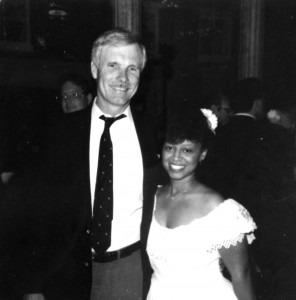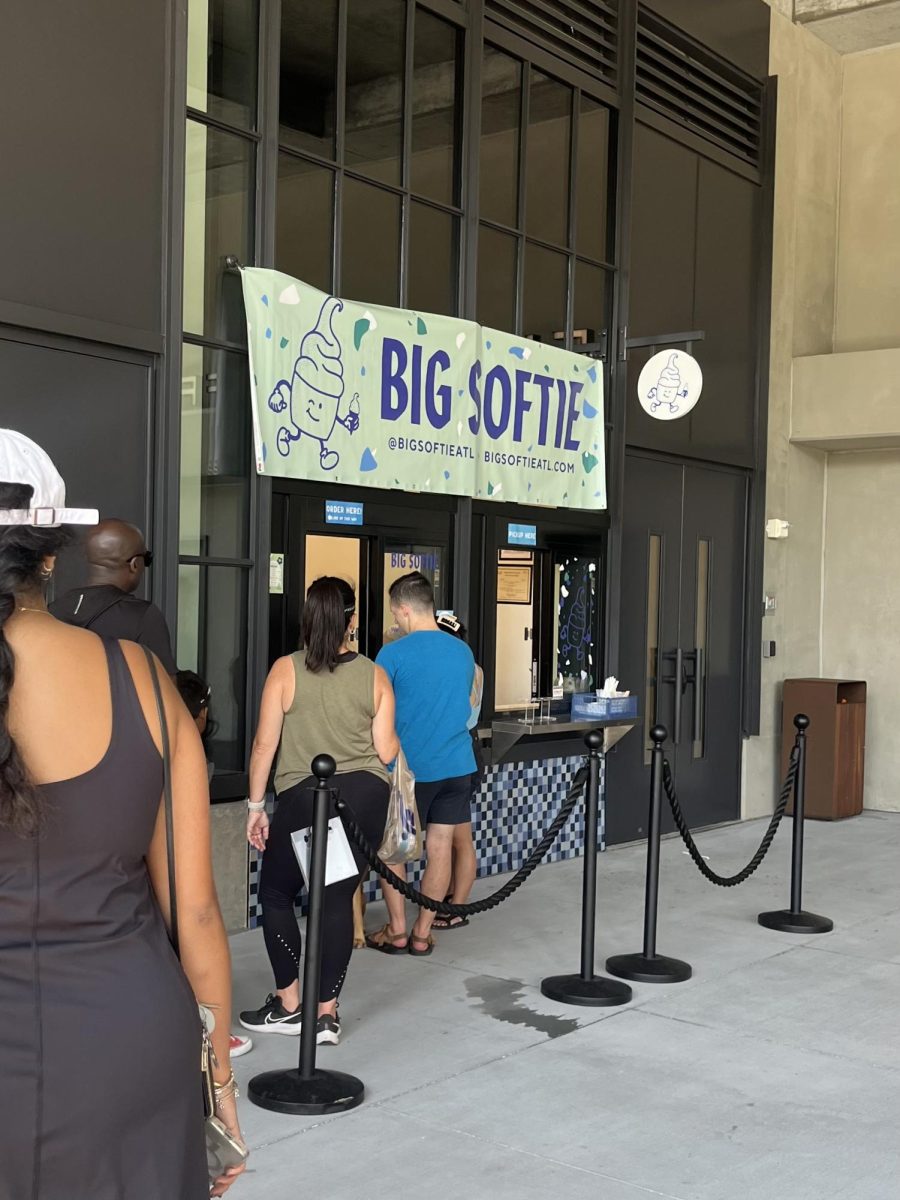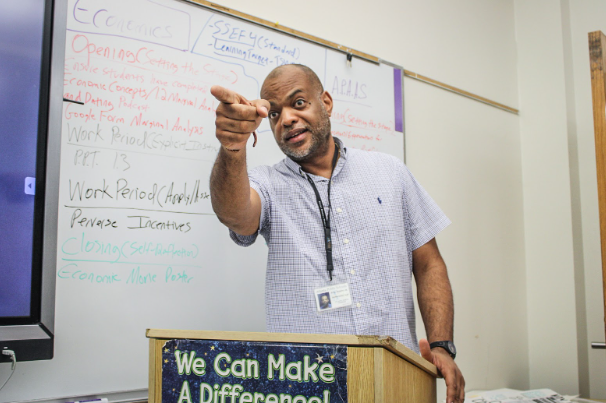By Lucy Lombardo and Elizabeth Gibbs
Spotting your science teacher in the produce section of Trader Joe’s as he picks out out lettuce is an odd experience. For most students, it’s difficult to imagine teachers doing anything other than teaching.
Many teachers did not plan on going into education as their first career choice. Physics teacher Jeff Cramer had a completely different goal in mind.
“I thought that I should be a doctor or something that was doing great good in the world,” Cramer said.
The benefits of working in corporate America called to some.
“I actually started off as an unpaid temporary right out of college,” registrar Chinaester Holland said. She eventually was promoted to vice president at Turner Broadcasting where she managed the call center.
Likewise, history and musical theater teacher Lee Pope had lofty aspirations.
“I went to New York to become an actor,” Pope said. He eventually went on to work among the cast of One Life to Live.
After one day on the cast, he quit. “I have always been the kind of person where if I’m unhappy I leave,” Pope said. “I don’t believe in staying miserable, and I felt that acting was becoming that for me.”
Teacher Brian Leahy’s past career stemmed from a college offer he received from the funeral home director, who would end up being his future employer.
“He asked me if I ever thought about going to college for mortuary science,” Leahy said. “He said if I did he would help me out with books and things.”
Leahy went on to become a mortician and embalmer in the largest family-owned funeral home in the East. For three years, at the height of his career, he was embalming 1,000 bodies a year.
“I did a lot of the work for a kind of pseudo-famous actor,” Leahy said. “I basically embalmed the mayor of Munchkinland from The Wizard of Oz.”
Latin teacher Scott Allen also worked with people—at a different point in their lives. He was a social worker, first with kids in foster care and eventually at Grady Hospital, helping people who had infectious diseases.
“Everything surprised me about the job,” Allen said. “There were really no two days that looked alike at all. Also it surprised me how easy it is to turn a blind eye to a lot of the problems and challenges people faced.”
These careers led to stressful situations similar to those faced by a teacher, and some had their fair share of crazy experiences.
At one point, Cramer was a child-care attendance officer at the DeKalb County Juvenile Court. While on duty, he would try to have fun with the kids he was responsible for.
“I’d take [the kids] outdoors and play basketball with them,” Cramer said. “One time a guy jumped over the fence while we were playing and ran away.”
Pope chose to deal with the stress of trying to find work in New York by injecting his sense of humor into stressful moments.
“[One time] I didn’t want to tap dance,” Pope said. “I told my dance instructor, ‘Just let everyone tap dance around me and I’ll sing.’ She told me there was no room for divas in her class and threw me out.”
Literature and debate teacher Mario Herrera worked for Disneyland. Despite the benefits of working at the park, he eventually grew tired of the internal workings of Disney. “Everything was so structured, and the magic that happened behind the scenes was not the magic that happened in front.”
Others realized hidden talents while performing day-to-day duties.
“The thing that surprised me was that I was capable of handling very difficult situations in as graceful of a manner as I could,” Leahy said.
Eventually, these talents led them to consider leaving their jobs and entering the world of public education. A family tragedy opened Herrera’s eyes, and he switched careers.
“My mom was going to be an elementry school teacher, but she passed away very unexpectedly,” Herrera said. “I kind of did it for my mom as well as for myself.”
Cramer grew tired of kids complaining that their teachers were mean and the administration incompetent. He realized he’d do more good if he could help keep the kids in school.
“If I’m teaching the kids, they’re right in front of me, and I don’t have to go find them,” Cramer said. “That’s a better dropout prevention model.”
Most teachers had no regrets about leaving their first careers for jobs in education.
“In some ways I miss the craziness of it, but I don’t miss all the blood,” Allen said of his stint working at Grady Hospital.
In some cases, switching to a career in education can lead to surprising benefits.
“I miss the corporate world,” Holland said, “but it’s more rewarding emotionally to work with children.”









